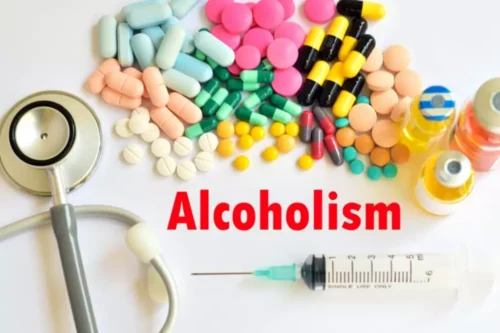If a person is very immunocompromised, for example, because they are undergoing cancer treatment, a doctor may recommend that they take extra steps to avoid foodborne illnesses. Stress can weaken the immune system further and make a person more susceptible to illness. However, a person with a weak immune system should always avoid close contact, such as hugging or kissing, with the unwell person until the illness resolves.

Get Plenty of Restorative Sleep

Bagby and colleagues review substantial evidence that alcohol further disrupts the immune system, significantly increasing the likelihood of HIV transmission and progression. The gastrointestinal (GI) system is typically the first point of contact for alcohol as it passes through the body and is where alcohol is absorbed into the bloodstream. One of the most significant immediate effects does alcohol weaken your immune system of alcohol is that it affects the structure and integrity of the GI tract. For example, alcohol alters the numbers and relative abundances of microbes in the gut microbiome (see the article by Engen and colleagues), an extensive community of microorganisms in the intestine that aid in normal gut function. These organisms affect the maturation and function of the immune system.
Infectious Diseases
Nonetheless, nonhuman primate models come with their disadvantages as well. Costly requirements such as dedicated facilities to house the animals, experienced personnel to perform specialized procedures, and compliance with high standards of care must be considered. Vitamin E is one of the most effective antioxidants and its deficiency exacerbates freeradical damage impairing the ability of T cells to respond to pathogenic challenge (Mocchegiani, Costarelli et al. 2014). Similarly, vitamin C, also an antioxidant, is important for phagocytic activity of neutrophils and monocytes, and enhances T cell responses (Strohle and Hahn 2009). Thiamine, also known as vitamin B1, contributes to the activation of T cells, suppresses oxidative stress-induced NFκB activation in macrophages, and serves as an anti-inflammatory factor (Manzetti, Zhang et al. 2014).
Respiratory Complications
- The first point of contact for alcohol after consumption is the gastrointestinal (GI) system before it is absorbed into the bloodstream.
- Some research even suggests that a few libations — 1 drink a day for women and 2 a day for men — may even boost the immune system.
- “Alcohol temporarily dampens anxiety, negative emotions, and other uncomfortable feelings, but the relief is short-lived and negative emotions tend to increase when the buzz wears off,” Koob says.
- For example, a person who has a vitamin C deficiency can have weakened immunity.
- It can also lead to a wide range of health problems, including high blood pressure and heart disease, liver disease, and increased risk of cancer.
For example, chronic alcohol misuse can cause anxiety and depression. The immune system is a term used to describe a combination of organs, tissues, and white blood cells. All of these work together to defend the body from illness, and each one of our organs also has its own immune cells to rid itself of these pathogens. Similarly, opportunities to laugh may reduce overall stress, making you less susceptible to illness in the long run, Cherian notes. A past article reveals that laughing may improve natural killer (NK) cell activity, albeit temporarily. NK cells belong to the same family as T and B cells; they play the important role of killing cells infected with virus, as well as detecting and controlling early signs of cancer, according to the British Society for Immunology.

- But if you find yourself leaning on the bottle to get you through the day, it could be worth it to head outside for a jog — exercise is a tested method of supporting the immune system — or video chat a friend instead.
- DCs uptake antigens in peripheral tissues which leads to their maturation, and then travel to draining lymph nodes where they present them to T cells (Janeway 2008).
- Alcohol alters the makeup of your gut microbiome — home to trillions of microorganisms performing several crucial roles for your health — and affects those microorganisms’ ability to support your immune system.
- Strength training at least twice a week is also a boon to your health, fortifying your bones, keeping disease at bay, and improving food processing in the body, per the National Institutes of Health (NIH).
- That’s because drinking during pregnancy doesn’t just affect your health.
What Happens If I Drink Alcohol When Taking Metronidazole?









